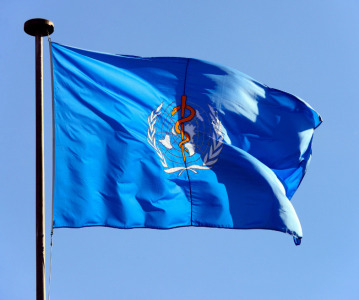Novartis receives EU approval for Revolade as first-in-class therapy for children aged 1 year and above with chronic ITP

Two formulations approved: once-daily tablet and oral suspension formulation designed for younger children who may not be able to swallow tablets.
Novartis has announced that the European Commission (EC) has approved Revolade (eltrombopag) for the treatment of pediatric (aged 1 year and above) chronic immune (idiopathic) thrombocytopenic purpura (ITP) patients who are refractory to other treatments (e.g., corticosteroids, immunoglobulins). The approval includes the use of tablets as well as a new oral suspension formulation of Revolade, which is designed for younger children who may not be able to swallow tablets. Revolade was approved by the EC in 2010 for use in adults with the same condition.
"For the families and caregivers of children affected by a rare disease, having a new treatment option can be game-changing in managing the disease," said Alessandro Riva, MD, Global Head, Novartis Oncology Development and Medical Affairs.
The approval is based on data from two double-blind, randomized, placebo-controlled trials, including the largest Phase III clinical trial in this patient population. In these studies, patients in the treatment and placebo arms were permitted to use some stable maintenance ITP therapies, per local treatment practices. Treatment with Revolade significantly increased and sustained platelet counts among pediatric patients with chronic ITP who were refractory to or had relapsed after prior chronic ITP therapies, and some patients taking concomitant ITP medications were able to reduce or discontinue their use of these medications, primarily corticosteroids.
ITP is a rare blood disorder that affects about five in 100,000 children each year and is characterized by a low platelet count. Because people with ITP have a low number of platelets, they may bruise easily and experience bleeding that is hard to stop. Chronic ITP, defined as ongoing disease more than 12 months after diagnosis, occurs in 13-36% of children with ITP. A small number of pediatric patients with chronic ITP may be at risk of significant bleeding.
The EC approval applies to all 28 EU member states, plus Iceland, Norway and Liechtenstein.
Related News
-
News Pharmaceutical industry supports COP28 health stance in joint statement
As COP28 takes place over this week in Dubai, UAE, several bodies in the pharmaceutical and health industries have come together to announce support of key movements in sustainability in the sector, and to recognise sustainability as a health issue.&nb... -
News Biden backs Cold-War measures to shore-up medical supply chains
In a recent strategy to combat rising inflation and the cost of living crisis, President Joe Biden has invoked a Cold War-era act to increase investment in a selection of medicines and supplies. -
News CPHI Podcast Series: What does the changing US Pharma market mean for industry and patients alike?
In this week's episode of the CPHI Podcast Series Lucy Chard, Digital Editor for CPHI Online is joined by James Manser to discuss the political and market changes in the US pharma field. -
News Which 10 drugs are open to price negotiation with Medicare in the USA?
The Centres for Medicare & Medicaid Services, under the Biden administration in the USA, has released a list of the 10 drugs that will be open to price negotiations as part of the new legislation under the Inflation Reduction Act (IRA). -
News 10 Major Drug Approvals So Far in 2023
Last year, 37 novel drugs were approved by the FDA, this was a high number for such a category, and covered many fields including oncology, demonstrating how promising further research is, and how it is only continuing to build. To date, there are alre... -
News Novartis agrees for copies to be made of cancer drug to reach poorer countries
Novartis signs agreement with MPP to have generics of it's leukemia drug made so that it can be more easily distributed to the world's poorer countries. -
News CPHI Podcast Series: outsourcing and manufacturing trends
Listen to the CPHI Podcast Series this June to hear Gil Roth of the PBOA speak with Digital Editor Lucy Chard about the biggest trends and topics to watch in pharma outsourcing and manufacturing at the minute. -
News New WHO health emergency guidelines expect full transparency from Big Pharma
The WHO are proposing a new set of pandemic guidelines to set out how future global health crises should be handled.
Position your company at the heart of the global Pharma industry with a CPHI Online membership
-
Your products and solutions visible to thousands of visitors within the largest Pharma marketplace
-
Generate high-quality, engaged leads for your business, all year round
-
Promote your business as the industry’s thought-leader by hosting your reports, brochures and videos within your profile
-
Your company’s profile boosted at all participating CPHI events
-
An easy-to-use platform with a detailed dashboard showing your leads and performance







